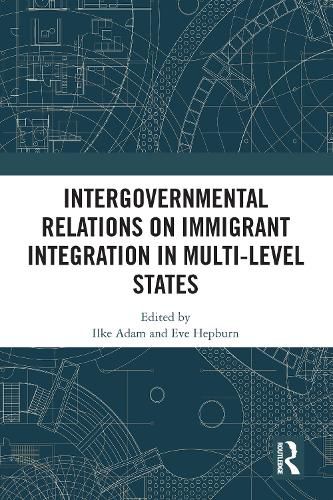Readings Newsletter
Become a Readings Member to make your shopping experience even easier.
Sign in or sign up for free!
You’re not far away from qualifying for FREE standard shipping within Australia
You’ve qualified for FREE standard shipping within Australia
The cart is loading…






This book explores how governments in multi-level states coordinate immigrant integration policies. It sheds light on how the decentralization of immigrant integration to substate regions can lead to conflict or cooperation, and how a variety of factors may shape different approaches to migrants.
Immigrant integration is an increasingly important policy area for governments. However, in multi-level states, immigrant integration is rarely the responsibility of the ‘central’ government. Instead, it is often decentralized to substate regions, which may have formulated their own, unique approaches. The way in which migrants are included into one part of a state may therefore be radically different from the experiences of migrants in another. How do multi-level states deal with potentially diverging approaches? This book examines how governments coordinate on immigrant integration in multi-level states. Four multi-level states form the backbone of the analysis: two of which are federal (Canada and Belgium) and two that are decentralized (Italy and Spain). We find that intergovernmental dynamics on immigrant integration are shaped by a variety of factors ranging from party politics to constitutional power struggles. This analysis contributes not only to our understanding of intergovernmental relations in multi-level systems; it also enhances our knowledge of the myriad ways in which different regions seek to include migrants into their societies, economies and political systems.
The chapters in this book were originally published as a special issue of Regional and Federal Studies.
$9.00 standard shipping within Australia
FREE standard shipping within Australia for orders over $100.00
Express & International shipping calculated at checkout
This book explores how governments in multi-level states coordinate immigrant integration policies. It sheds light on how the decentralization of immigrant integration to substate regions can lead to conflict or cooperation, and how a variety of factors may shape different approaches to migrants.
Immigrant integration is an increasingly important policy area for governments. However, in multi-level states, immigrant integration is rarely the responsibility of the ‘central’ government. Instead, it is often decentralized to substate regions, which may have formulated their own, unique approaches. The way in which migrants are included into one part of a state may therefore be radically different from the experiences of migrants in another. How do multi-level states deal with potentially diverging approaches? This book examines how governments coordinate on immigrant integration in multi-level states. Four multi-level states form the backbone of the analysis: two of which are federal (Canada and Belgium) and two that are decentralized (Italy and Spain). We find that intergovernmental dynamics on immigrant integration are shaped by a variety of factors ranging from party politics to constitutional power struggles. This analysis contributes not only to our understanding of intergovernmental relations in multi-level systems; it also enhances our knowledge of the myriad ways in which different regions seek to include migrants into their societies, economies and political systems.
The chapters in this book were originally published as a special issue of Regional and Federal Studies.